Abstract
1 The effects of rifampicin, phenytoin, and disopyramide treatments on the metabolism of disopyramide were studied in patients and volunteers. 2 Rifampicin treatment markedly increased the metabolism of disopyramide. 3 Phenytoin had effects similar to those of rifampicin. The effect subsided in 2 weeks after stopping the treatment. 4 The metabolism of disopyramide seemed fastest in the patient group with the higher dose of disopyramide. Both in patients and volunteers a significant increase occurred in the urinary mono-N-dealkyldisopyramide/disopyramide ratio during the first week of disopyramide therapy. This change can partly be due to pharmacokinetic differences between disopyramide and its metabolite. The inducing effect of disopyramide remained uncertain.
Full text
PDF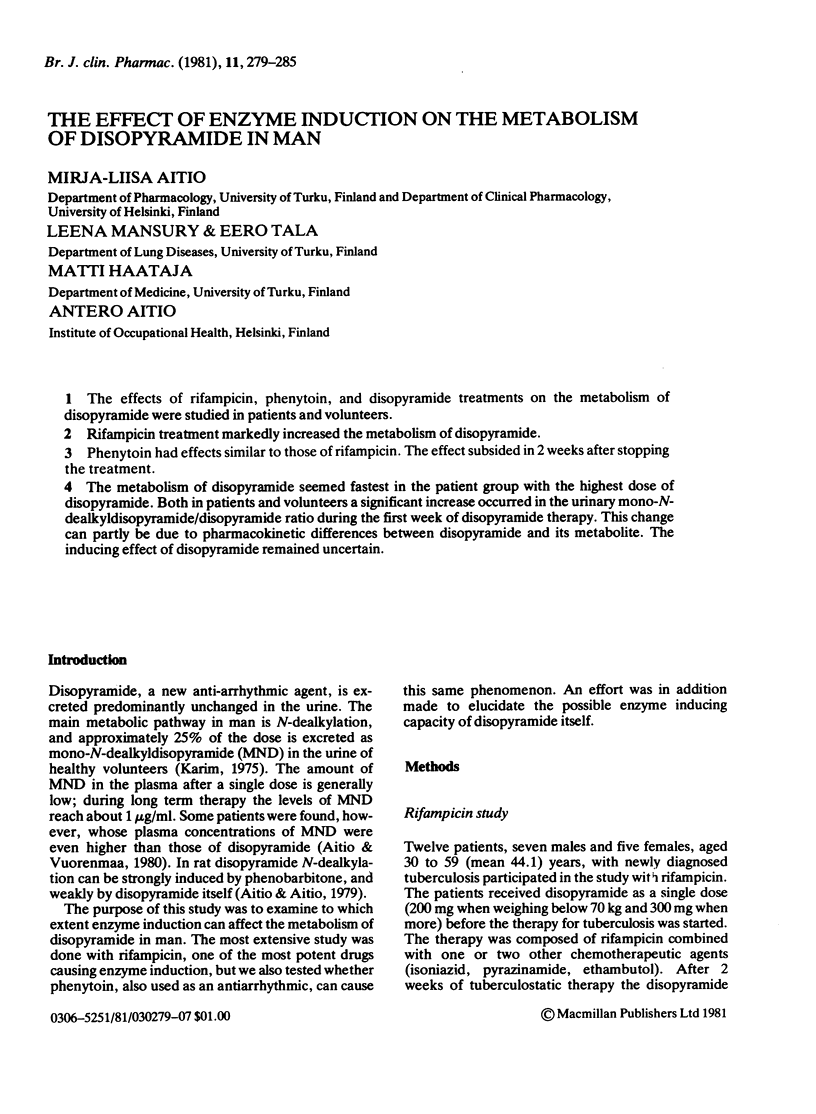
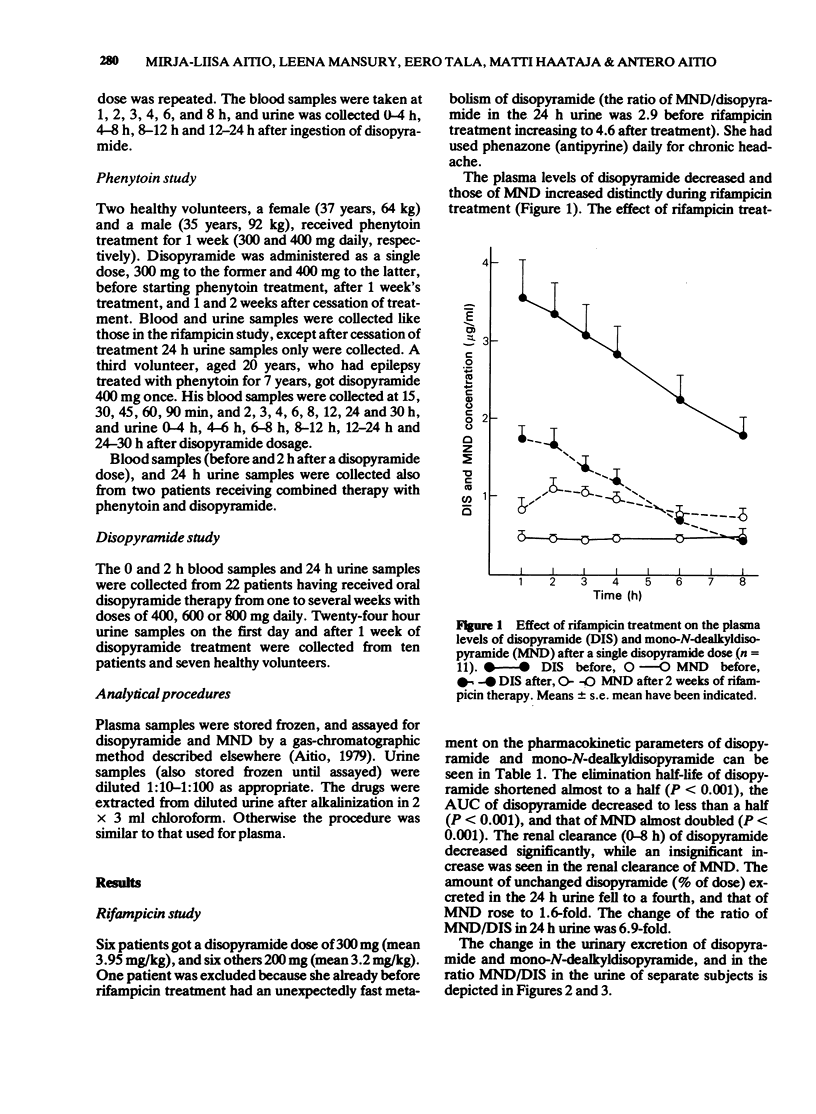
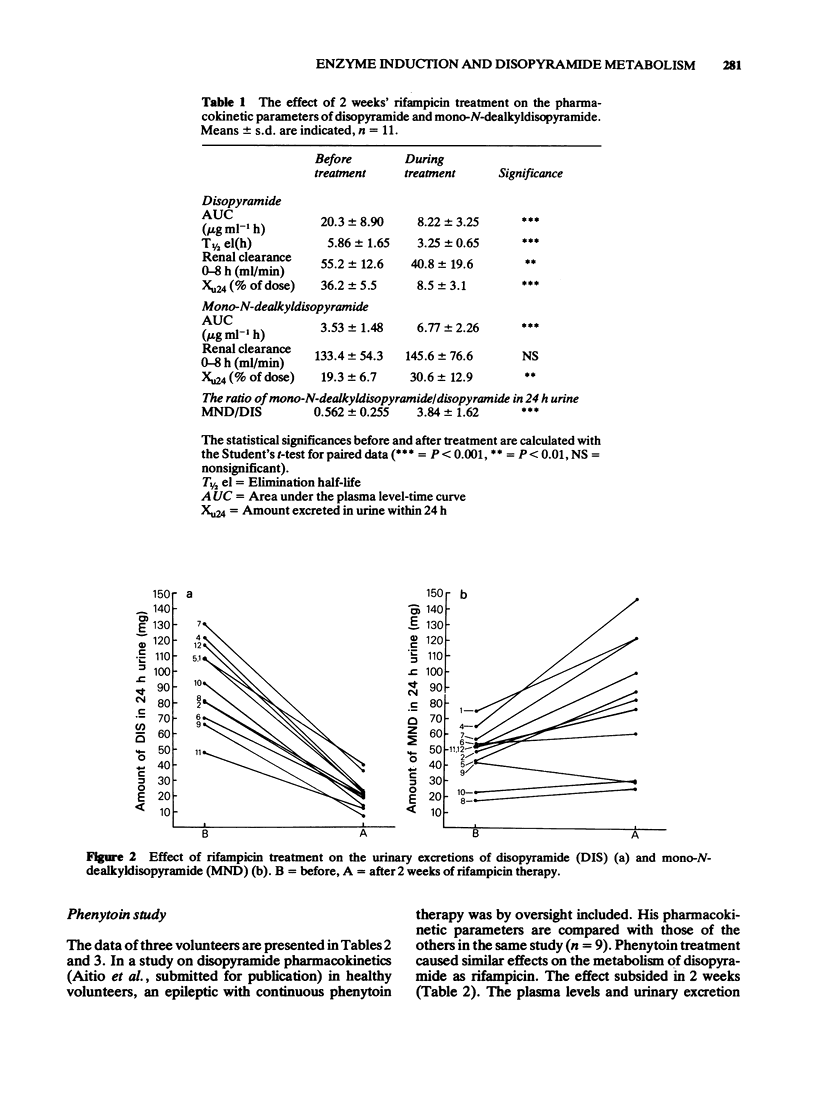
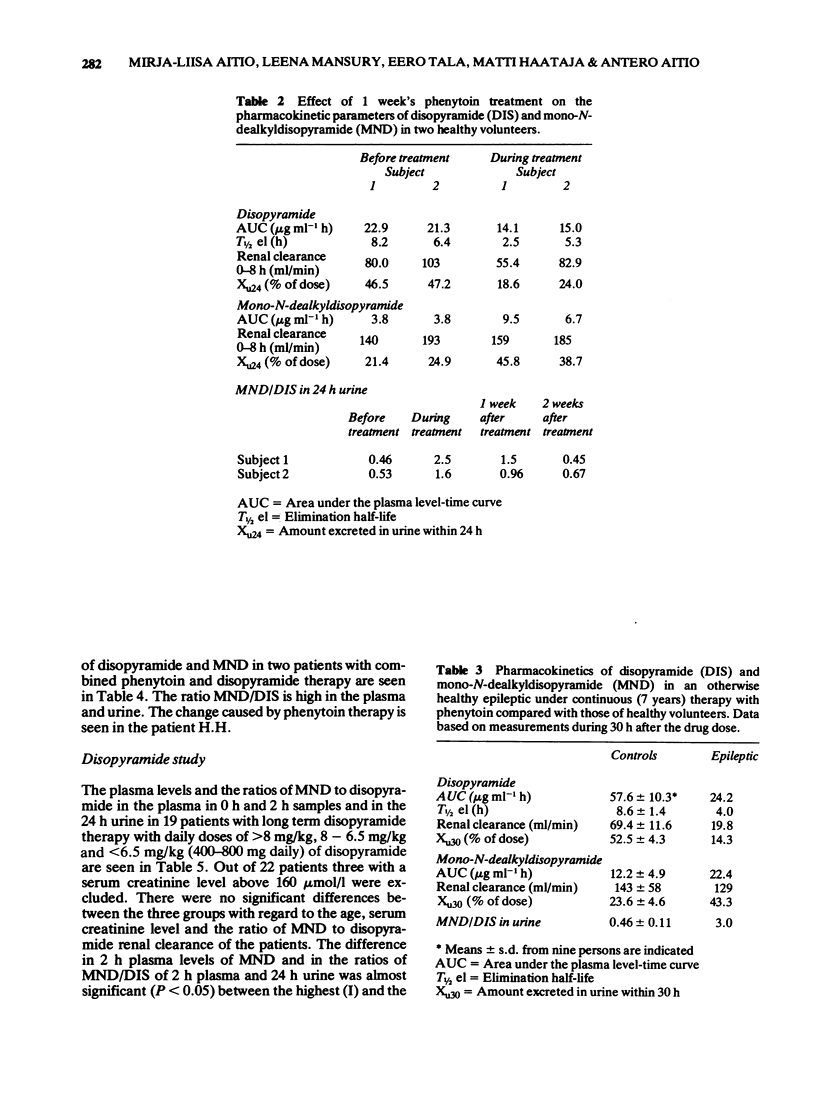
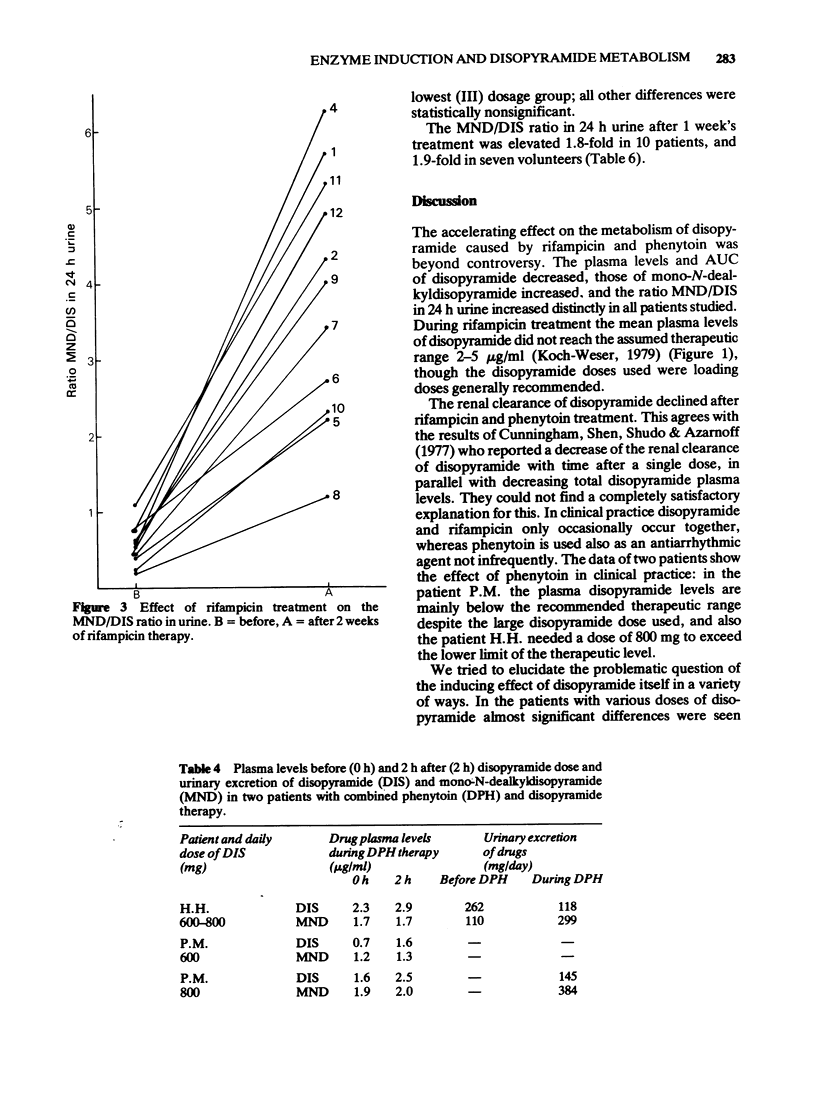
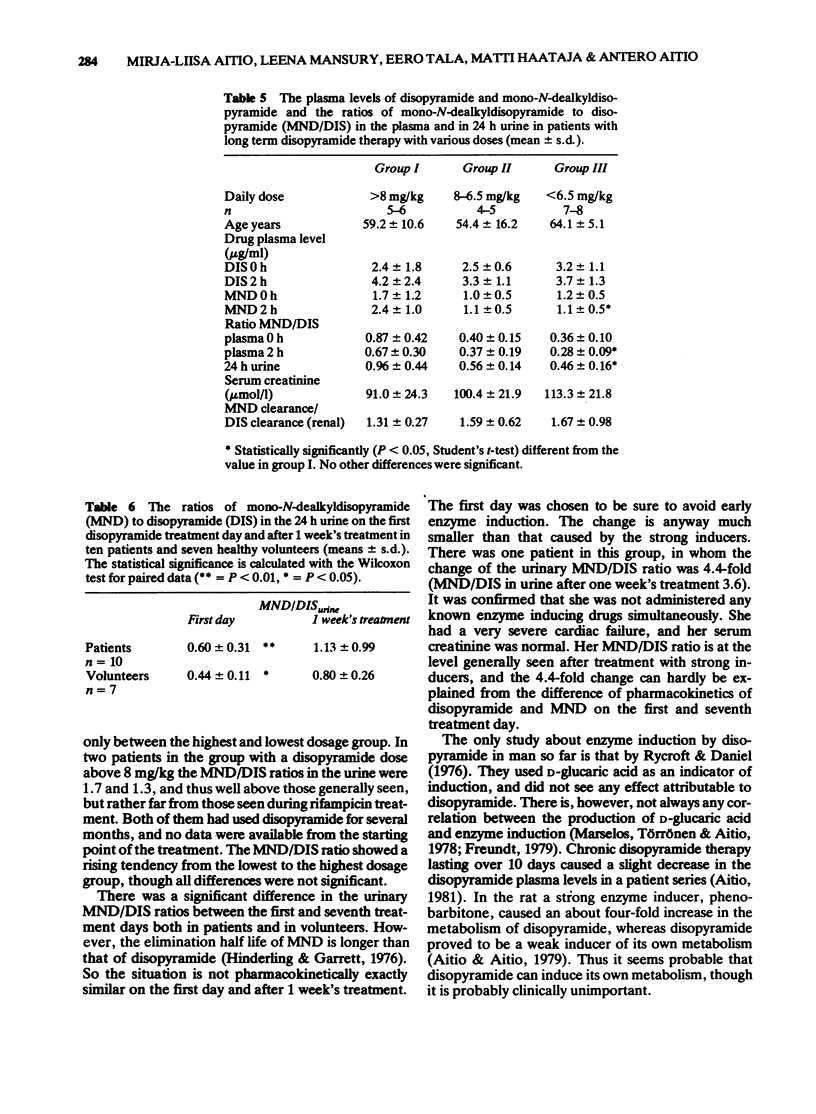
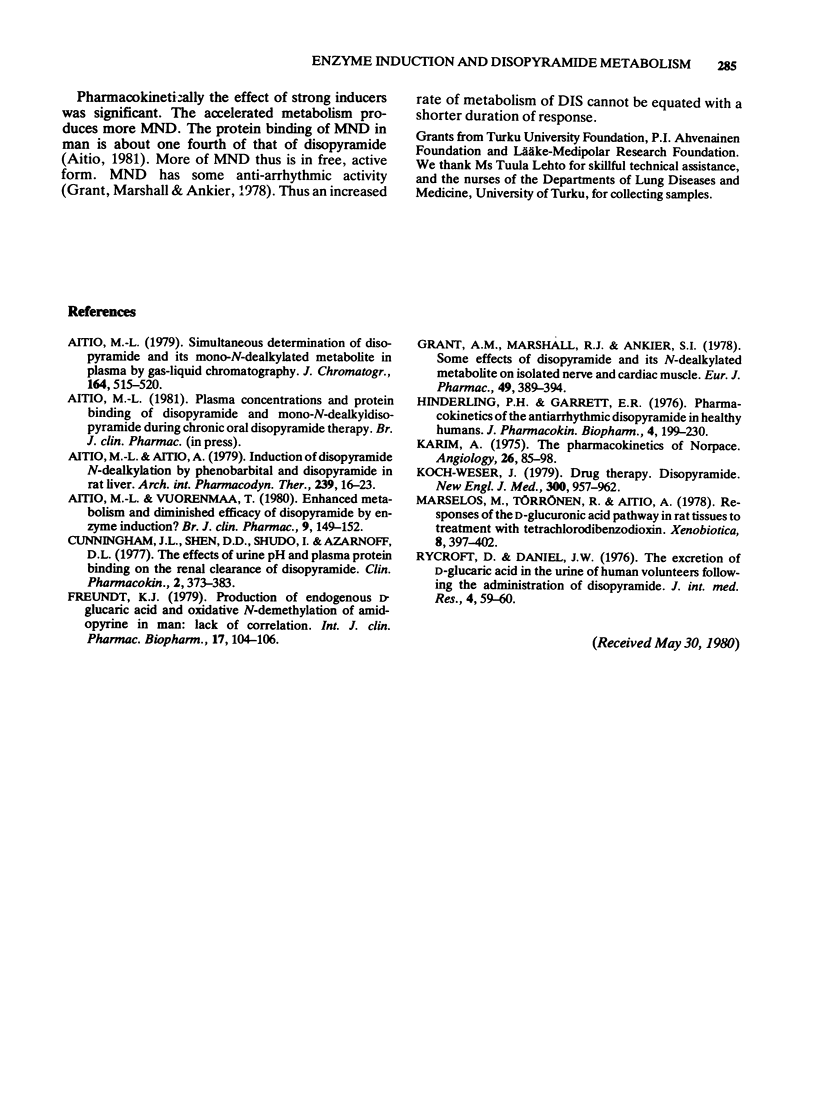
Selected References
These references are in PubMed. This may not be the complete list of references from this article.
- Aitio M. L., Aitio A. Induction of disopyramide N-dealkylation by phenobarbital and disopyramide in rat liver. Arch Int Pharmacodyn Ther. 1979 May;239(1):16–23. [PubMed] [Google Scholar]
- Aitio M. L. Simultaneous determination of disopyramide and its mono-N-dealkylated metabolite in plasma by gas-liquid chromatography. J Chromatogr. 1979 Dec 1;164(4):515–520. doi: 10.1016/s0378-4347(00)81556-x. [DOI] [PubMed] [Google Scholar]
- Aitio M. L., Vuorenmaa T. Enhanced metabolism and diminished efficacy of disopyramide by enzyme induction? Br J Clin Pharmacol. 1980 Feb;9(2):149–152. doi: 10.1111/j.1365-2125.1980.tb05825.x. [DOI] [PMC free article] [PubMed] [Google Scholar]
- Cunningham J. L., Shen D. D., Shudo I., Azarnoff D. L. The effects of urine pH and plasma protein binding on the renal clearance of disopyramide. Clin Pharmacokinet. 1977 Sep-Oct;2(5):373–383. doi: 10.2165/00003088-197702050-00004. [DOI] [PubMed] [Google Scholar]
- Freundt K. J. Production of endogenous D-glucaric acid and oxidative N-demethylation of amidopyrine in man: lack of correlation. Int J Clin Pharmacol Biopharm. 1979 Mar;17(3):104–106. [PubMed] [Google Scholar]
- Grant A. M., Marshall R. J., Ankier S. I. Some effects of disopyramide and its N-dealkylated metabolite on isolated nerve and cardiac muscle. Eur J Pharmacol. 1978 Jun 15;49(4):389–394. doi: 10.1016/0014-2999(78)90313-8. [DOI] [PubMed] [Google Scholar]
- Hinderling P. H., Garrett E. R. Pharmacokinetics of the antiarrhythmic disopyramide in healthy humans. J Pharmacokinet Biopharm. 1976 Jun;4(3):199–230. doi: 10.1007/BF01063614. [DOI] [PubMed] [Google Scholar]
- Karim A. The pharmacokinetics of Norpace. Angiology. 1975 Jan;26(1 Pt 2):85–98. [PubMed] [Google Scholar]
- Koch-Weser J. Disopyramide. N Engl J Med. 1979 Apr 26;300(17):957–962. doi: 10.1056/NEJM197904263001705. [DOI] [PubMed] [Google Scholar]
- Marselos M., Törrönen R., Aitio A. Responses of the D-glucuronic acid pathway in rat tissues to treatment with tetrachlorodibenzodioxin. Xenobiotica. 1978 Jul;8(7):397–402. doi: 10.3109/00498257809070023. [DOI] [PubMed] [Google Scholar]
- Rycroft D., Daniel J. W. The excretion of D-glucaric acid in the urine of human volunteers following the administration of disopyramide. J Int Med Res. 1976;4(1 Suppl):59–60. [PubMed] [Google Scholar]


